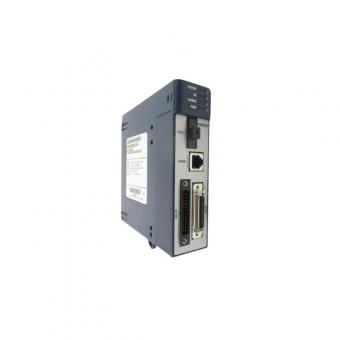What Makes GE FANUC PLC a Reliable Choice for Industrial Automation?
GE FANUC PLC is widely recognized as a stable, scalable, and long-service-life control solution engineered for demanding industrial environments. It is built to handle complex logic operations, high-speed data processing, and real-time machinery control across sectors such as manufacturing, energy, chemical processing, packaging, and automotive automation. The purpose of this article is to explore the architecture, performance characteristics, and future development trends of GE FANUC PLC, while answering key questions that engineers and procurement managers often consider when evaluating a control platform.
What Are the Key Specifications and Functional Advantages of GE FANUC PLC?
A comprehensive understanding of GE FANUC PLC begins with reviewing its architecture and core parameters. The system integrates CPU modules, I/O expansions, high-speed counters, communication ports, and power modules designed for robust performance. The platform is valued for its durability, modular flexibility, and ability to support mission-critical operations under harsh conditions.
Technical Specifications Overview
| Parameter Category | Description |
|---|---|
| CPU Processing Speed | Up to 1ms per 1K steps, supporting high-speed logic execution |
| Memory Capacity | 32KB to 1MB depending on model, supporting complex ladder logic and structured programming |
| I/O Capacity | 128 to 4096 I/O points with modular expansion |
| Communication Interfaces | RS-232, RS-485, Ethernet, PROFINET, DeviceNet, Modbus |
| Power Requirements | 24V DC or 120/240V AC options |
| Operating Temperature | 0–60°C with high resistance to vibration and shock |
| Programming Software | Proficy Machine Edition, supporting ladder logic, function block, and structured text |
| Redundancy | CPU redundancy and hot-swap I/O in selected models |
| Application Industries | Packaging, CNC machinery, energy plants, material handling, water treatment, automotive |
Why Is GE FANUC PLC Considered Reliable in High-Demand Environments?
Several technical and structural attributes contribute to its reliability:
-
Industrial-grade durability: The hardware withstands vibration, temperature fluctuations, and electrical noise, ensuring uninterrupted production.
-
Stable communication framework: The system supports multi-protocol communication, allowing seamless integration with SCADA, MES, and intelligent sensors.
-
Redundant system design: High-end models offer CPU and network redundancy to prevent downtime during critical operations.
-
Long-term platform stability: GE FANUC PLC maintains consistent compatibility across generations, protecting prior investments and minimizing integration risks.
-
Advanced diagnostics: Built-in fault detection helps maintenance teams locate issues quickly and prevent unexpected shutdowns.
How Does GE FANUC PLC Improve Production Line Performance?
The enhanced processing power, modular expandability, and advanced communication features allow for:
-
Faster cycle times
-
Real-time feedback control
-
Predictive maintenance opportunities
-
Higher accuracy in motion control
-
Easy expansion when production scales
-
Stronger integration with future digital systems
Through precise control and continuous data communication, the PLC optimizes output efficiency and helps facilities maintain high standards of quality and safety.
Why Is GE FANUC PLC Important for Modern Industrial Automation Trends?
What Challenges in Industrial Automation Does It Address?
Manufacturers today face increasing demands for speed, flexibility, and energy efficiency. GE FANUC PLC meets these challenges by offering a stable architecture capable of supporting multi-axis control, intelligent sensors, and advanced predictive algorithms. The platform enables end-users to optimize workflows, automate repetitive tasks, and reduce dependency on manual adjustments.
How Does GE FANUC PLC Support Digital Transformation?
Several features position it well for the ongoing transformation of industrial systems:
-
Edge-ready computing: Local processing allows real-time decision-making without waiting for cloud response.
-
Structured programming compatibility: Multiple programming languages support diverse engineering requirements.
-
Scalable architecture: Factories can start small and expand control networks without replacing core PLC units.
-
Data accessibility: Ethernet and industrial protocols allow transparent data flow for analytics.
What Are the Future Trends for GE FANUC PLC and Industrial Automation?
Industrial systems continue to evolve toward higher levels of intelligence and connectivity. GE FANUC PLC is expected to align with future trends such as:
-
Integration with cloud monitoring and remote diagnostics
-
AI-supported predictive maintenance
-
Higher-speed communication networks supporting Industry 4.0
-
Increased use of modular and plug-and-play components
-
Enhanced cybersecurity protections
-
Automated parameter optimization in production systems
These advancements support long-term efficiency and contribute to more autonomous enterprise environments.
What Do Engineers Need to Know About GE FANUC PLC?
Q1: How difficult is it to program a GE FANUC PLC?
A: GE FANUC PLC programming is considered intuitive due to its structured software environment. Proficy Machine Edition provides tools for ladder logic, function blocks, and structured text. Engineers benefit from a clear interface, detailed diagnostics, and drag-and-drop components that simplify development. Extensive libraries and reusable program blocks ensure consistency across different projects. Even complex tasks like motion control or PID tuning can be executed efficiently with guided configuration menus.
Q2: Can GE FANUC PLC be integrated with existing automation equipment?
A: Yes. GE FANUC PLC offers excellent compatibility with a wide range of industrial devices through standard protocols such as Ethernet, Modbus, DeviceNet, and PROFINET. This makes it possible to integrate legacy hardware, third-party sensors, and modern automation systems without extensive reengineering. Its flexible architecture helps reduce upgrade costs and allows smooth transitions during system modernization.
Why Does GE FANUC PLC Continue to Be a Strong Choice for Industrial Automation?
GE FANUC PLC delivers a versatile combination of durability, high performance, modular expansion, and digital integration capabilities. Its architecture is engineered to provide long-term stability, ensuring that users can maintain safe, reliable, and efficient operations even in demanding industrial environments. With strong diagnostic tools, scalable communication options, and broad compatibility, the platform offers significant advantages for both current applications and future automation upgrades.
As industries move toward smarter, more connected, and energy-efficient production models, GE FANUC PLC continues to provide the dependable foundation required for operational excellence. Manufacturers seeking stable automation solutions can benefit from its balanced mix of technology, reliability, and adaptability.
For high-performance industrial automation hardware and solutions, Hanhui Guan provides dedicated support and supply capabilities for a wide range of PLC models. For professional guidance or product inquiries, contact us to discuss your specific application needs.




